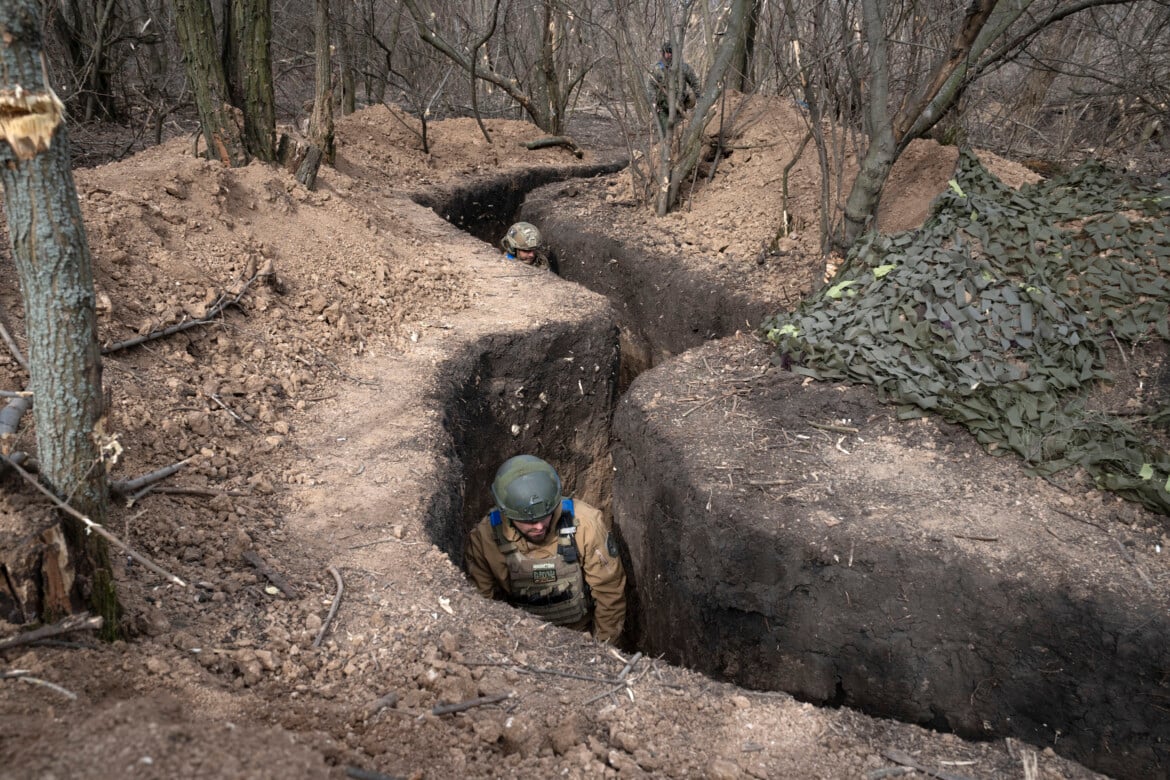Analysis
Zelensky has moved from the ‘victory plan’ to ‘two Ukraines’
As recently as in mid-October, Zelensky was presenting his “victory plan." Now, in a video interview for the readers of the Le Parisien newspaper, he has admitted that “de facto, these territories are now controlled by the Russians. We do not have the strength to recover them."

Just as there were once two Germanies, it’s likely that there will be two Ukraines. Zelensky is now acknowledging something that most Western governments, starting with the U.S., have long thought: the Ukrainian military does not have the military means nor the manpower to recapture Crimea and the Donbass. And it hasn’t had them since 2014, when Russia, through pro-Russian rebels, began to occupy those territories after years of civil war.
As recently as in mid-October, Zelensky was presenting his “victory plan”; now, in a video interview for the readers of the Le Parisien newspaper, he has admitted that “de facto, these territories are now controlled by the Russians. We do not have the strength to recover them. We can only count on diplomatic pressure from the international community to force Putin to sit down at the negotiating table.”
The message seems to be that the Ukrainian people must be prepared to surrender at least part of that 20 percent of their territory forcibly taken by the Russians. Zelensky signaled his acceptance of this scenario, although what “the Donbass” means is still up for debate, whether it includes all the territory occupied between 2022 and 2024 or just the Donetsk and Lugansk districts that Moscow has controlled since 2014. But in effect, the Ukrainian president accepts that the country will be divided into two parts for some years (perhaps many), under a transitional formula, at least for as long as the current regime is in power in Moscow. With Trump's election, Kyiv realized that it risked being abandoned to its fate, as evidenced by the crass tweet with which the U.S. president-elect's son compared aid to a country under attack to an “allowance” for Zelensky.
Now the terms of the Ukrainian question have changed. After all the bombastic announcements, the Trump effect has moved the focus from the issue of territories to the issue of security. Ukraine had set the restoration of its sovereignty over its full territory as a precondition for ending the war, but the balance of forces on the ground, which has become increasingly favorable to Russia – which continues to bomb Ukraine with abandon, including civilian targets – has made this a de facto impossibility: it would certainly take a very long time and be very costly in terms of both human lives and Western financial support. Today, Ukraine knows that it will have to sacrifice territories conquered by Russia while waiting for better days, in a scenario that recalls the two Germanies (separated for decades, but eventually reunited).
In exchange for territorial sacrifices, Ukraine is asking for real security guarantees, to ensure that the conflict won’t start up again as soon as the West looks the other way. What might these guarantees be? Ukraine's membership in NATO would be the supreme guarantee, thanks to Article 5, which provides for automatic mutual defense in case of aggression. But Putin will never accept this, and Trump is of the same view. As a result, another option is being discussed: the deployment in Ukraine of troops from NATO countries acting independently from the alliance, offering a concrete guarantee of defense of the country's sovereignty, or the deployment of European troops but under the aegis of the United Nations. The fact that European leaders are talking about this is already a step forward, but not everyone likes such talk. NATO Secretary General Mark Rutte has claimed that these discussions help Russia: “If we now start to discuss amongst ourselves what a deal could look like, we make it so easy for the Russians.”
Rutte, in his self-appointed role as armchair strategist, must have missed a few key elements: not only the impending arrival at the White House of a president who boasted that he could solve the war in Ukraine within 24 hours, but more importantly, the fact that Ukraine is exhausted. More Ukrainian soldiers have defected in the first 10 months of this year than in the previous two years of war, highlighting Kyiv’s difficulties in replenishing the front lines as Russia gains more and more territory in eastern Ukraine: more than 100,000 soldiers have been charged under Ukraine's desertion laws since Russia's invasion in 2022, according to data from Kyiv's prosecutor general. The Russians are also tired of war, and the economic crisis is taking its toll on them, but Putin can still count on mercenaries, and even on North Korean troops.
Nevertheless, Rutte, who on Wednesday had dinner with Zelensky in Brussels where a narrow summit on Ukraine was taking place, continues to insist that we must prepare for war and increased military spending, including at the cost of cutting welfare spending. But at this point, he might be hearing a different tune from the Ukrainian president. Zelensky himself no longer seems so firmly in control. The attack that eliminated General Kirillov in Moscow, claimed by the SBU, the Ukrainian security services, shows that Ukraine wants to take the war to the heart of Russian society, so that the Russian population will also suffer its effects as Moscow bombs Ukrainian cities on a daily basis. But while people are waiting for Moscow's retaliation – which in the meantime has arrested a young Uzbek man for the killing – Zelensky has already upped the stakes: he will now have to get his people to accept the prospect of two Ukraines, a radical change of course that may end up costing him dearly.
Originally published at https://ilmanifesto.it/zelensky-dal-piano-della-vittoria-alle-due-ucraine on 2024-12-19
